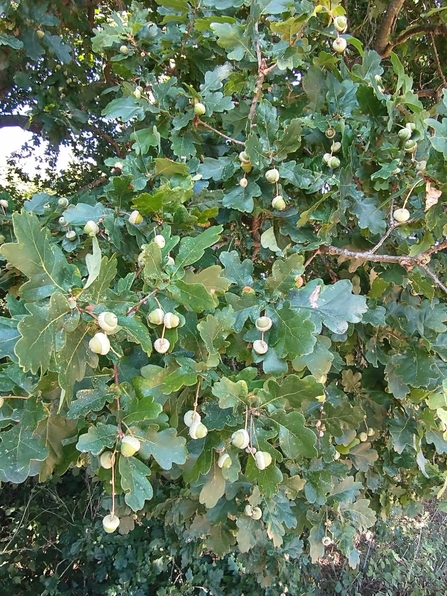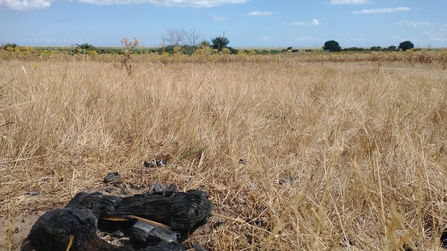Weekly wild news from our reserves - 19 August 2022
Burnished brass moth at Snape Marshes – Rachel Norman
This amazing footage of a beewolf was captured by Visitor Officer and entomologist Hawk Honey at Knettishall Heath this week.
The beewolf is a large solitary wasp, most often found on sandy areas of lowland heath and coastal dunes. They used to be extremely rare, with just a few scattered populations in southern England, but in the past few decades they have expanded their range dramatically.
Female beewolves prey on honeybee workers, paralysing them with a sting and carrying them back to their burrow. These burrows can be a metre long, with up to 34 side burrows that end in brood chambers. Up to six paralysed honeybees are placed in each brood chamber, then a single egg is laid on one of the bees and the chamber is sealed with sand. After hatching, the beewolf larva feeds on the cache of honeybees before spinning a cocoon to hibernate through winter, ready to emerge in spring.
Preparations for winter and spring birds
It’s that time of year when our wardens are busy with grassland management by topping, alongside grazing the wet grassland areas around the wetlands. The combination of these will ensure a short sward for wintering waders and wildfowl as well as prepping for the next spring to ensure perfect conditions for ground nesting birds. Reserve teamwork always involves thinking ahead!
Hide and seek
We think the ponies at Hen Reedbeds might have been having a game of hide and seek!
Burnished brass
This distinctive, shimmery moth is a burnished brass, which feeds on honeysuckle, red valerian or buddleia flowers. The caterpillars mainly feed on nettles at night, concealing themselves low down on the nettle stems in the day to avoid predators.
Spiders spreading out
The North East Suffolk Reserve Team alongside Dr Helen Smith spent a successful day surveying land adjacent to Carlton and Castle Marshes for fen raft spiders. They were thrilled to find these iconic spiders are expanding their range through the lower Waveney valley.
Wildflowers for wildlife
The Plantlife 'No Mow May' garden at Lound Lakes, Fen Barn Garden has been cut this week by Warden Andy Hickinbotham, and the arisings were moved to less floristic areas of the reserve for the seeds to spread. Next the volunteer team will rake and pile the resulting hay to make a hibernaculum for reptiles.
Smoking pipes
There are masses of acorns on some of Lound Lakes’ English (also known as pedunculate) oaks. You can tell this one is a pedunculate oak as the acorns are on sticks and look like old fashioned smoking pipes.

Pedunculate oak – Andy Hickinbotham
Fire frustration
Warden Dan Doughty was beyond disappointed to find remains of a fire at Dingle Marshes this week. Intentionally lighting fires or barbecues on nature reserves in these drought conditions is dangerous and potentially devastating. It’s incredibly lucky that this one didn’t spread and cause more damage.

Fire remains – Dan Doughty
Sunset reward
The wardens have been regularly working in the early mornings and evenings this week due to the extreme hot weather. At the weekend the team worked into the evenings at Hen Reedbeds, scheduling animal husbandry work in the cooling evening and before the forecast storms. The team were aptly rewarded with this beautiful sunset.












